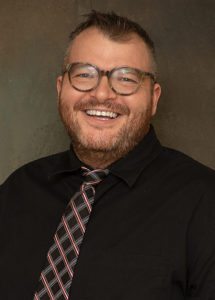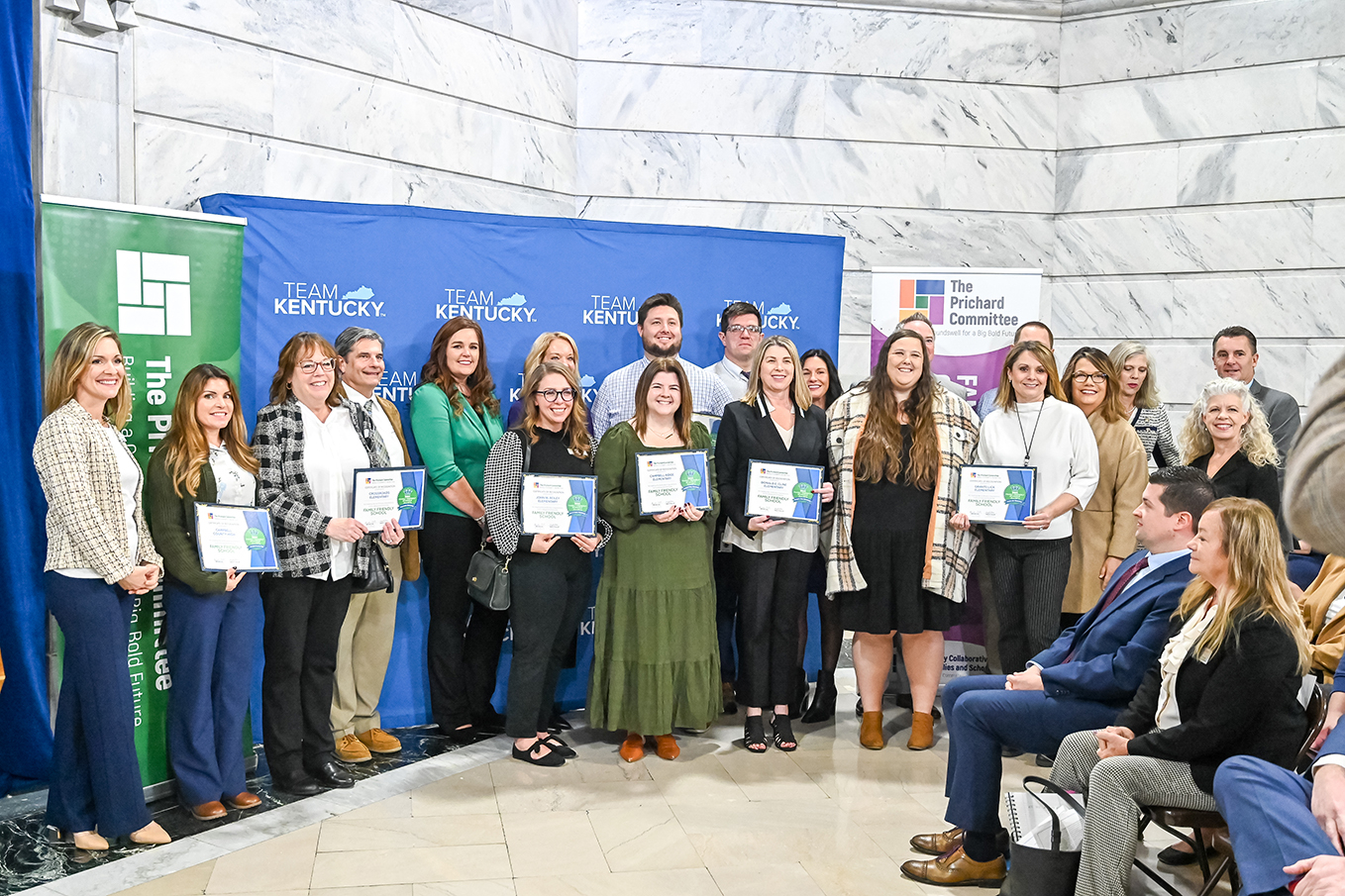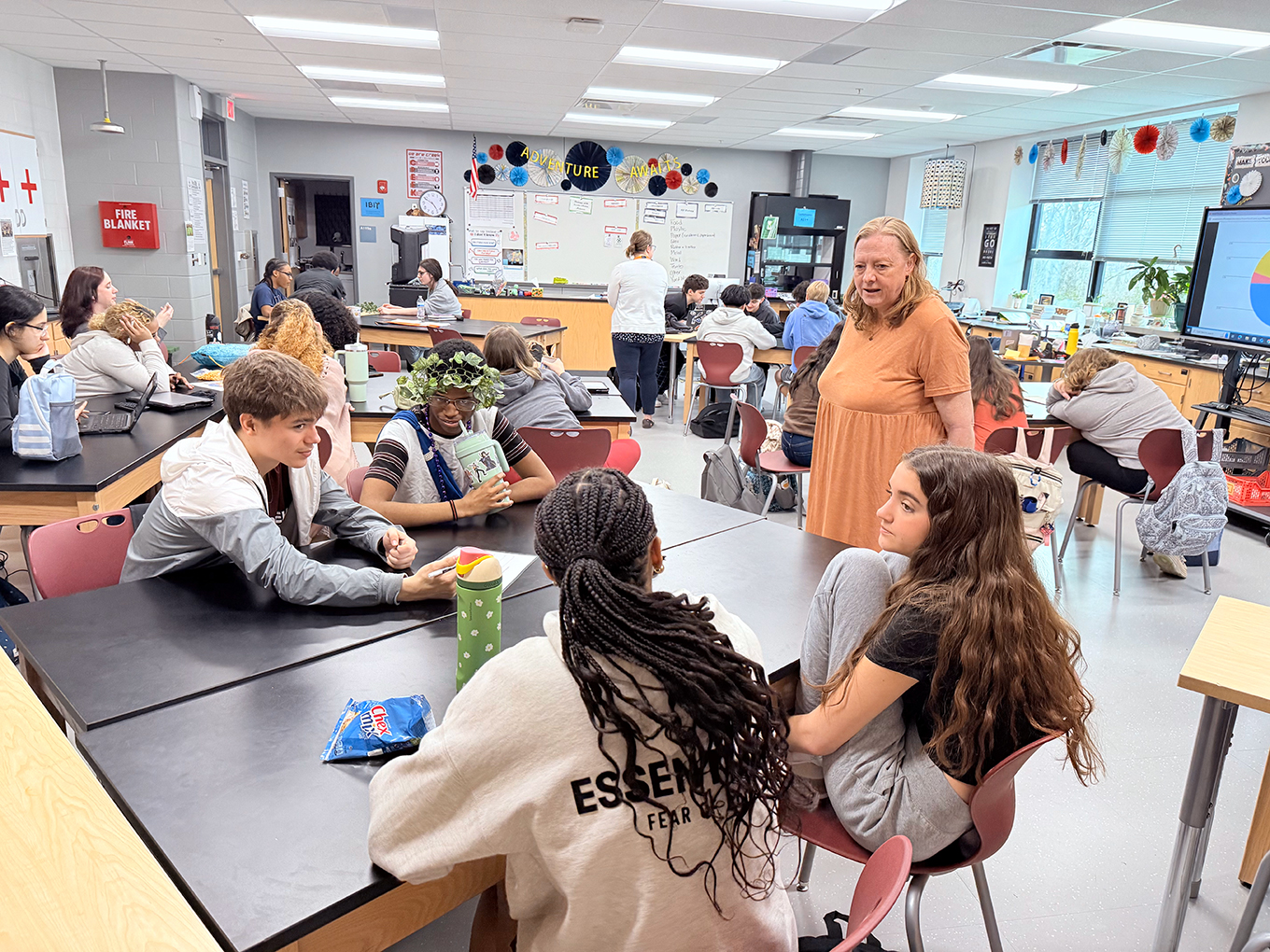
Willie Edward Taylor Carver Jr., 2022 Kentucky Teacher of the Year
As a teacher, I am asked a similar question nearly daily:
“How do you still do it?”
“Are you thinking of leaving?”
“Have you considered jobs in higher ed?”
The questions suggest that teaching isn’t something anyone would want to do anymore and leaving is obvious.
In all fairness, the last few years have been difficult, as Kentucky Commissioner of Education Jason E. Glass points out. Crowded classrooms have spread COVID-19. Quarantines have made it harder to connect with students and ensure their adequate mental health, let alone learning.
Our pay is down, despite the abundance of advanced degrees. The pay difference between teachers and other college-degree holders was only 6% in 1996; our pay is now a full 20% lower than that of our undergraduate classmates.
We have fewer resources, record burnout – with a quarter of teachers planning to leave by 2023 – and new legislation aiming to micromanage, politicize or add more work for teachers.
So, the question I am often asked – on the surface – makes sense.
Teachers in this Commonwealth rise to challenges, and we rise because of our love for education and despite those challenges. However, we are living in a time of great change and these are make-or-break moments.
In a make-or-break moment, our education system must not be broken; it must be remade. We must move away from a despite-driven paradigm demanding normalcy despite impossible difficulties. We must transform into a thanks to-driven paradigm, which allows for the impossible to happen thanks to meaningful shifts encouraging thriving teachers.
Now is the time for a bold future that reimagines education – and the teacher.
From my perspective, honed by years working with brilliant educators, here is how to create thriving teachers:
- Above all else: Place faith and trust in teachers as people. We need structures encouraging teachers to speak about complex and difficult concepts, issues students must wrestle with for the sake of their well-being and the soundness of our democracy. Stifling conversations indicates distrust; encouraging them demonstrates faith.
- Treat teachers as professionals. I hold multiple advanced degrees and can teach kindergarten through college; for a teacher though, that’s unremarkable. However, our current system encourages canned content, standardized assessments and “teacher-proof” approaches. A smarter system would take advantage of my skillset to solve problems and generate creative community-needed solutions.
- Pay teachers their worth. Three issues harm education. First, would-be teachers pass on education because their talent is better rewarded elsewhere. Next, current teachers are leaving because they know their worth. Finally, those staying feel unappreciated. A better system draws in and keeps the best talent through competitive pay and benefits, the same open-market approach that grows talent in the private sector.
- Encourage teachers to try something new and use their entire skillset. I imagine a system in which administrators encourage teachers to shoot bigger every time we discuss ideas, instead of the opposite. Imagine teacher innovation being systematically celebrated the way we celebrate (or mourn) test scores today.
- Create conditions suitable for learning. With class sizes approaching 30, mandatory weekly data reporting and few materials, students get lost in the shuffle. Teachers thrive when students thrive, and thriving students are more than numbers. That’s a sentiment made loud and clear by students, parents, and community members in Kentucky.
- Support teachers. All good teachers will be caught up in a social media firestorm at some point; it’s the new world. Teachers thrive when they know they will be backed by administration when they do the right thing and provided help when they need it.
- Finally, listen to teachers. A school of 40 teachers has 200 years of education-specific university instruction, yet teachers often are the last at the table when policy is decided or discussed. Normally, we are left conversing in private group threads while conversations happen on our behalf, often by people who have never taught. Hear us because we are advocates for children, the most vulnerable and valuable segment of our society.
A strong education system puts its primary focus on children as members of their communities, as real, whole and important citizens. That focus necessitates thriving teachers who are strong advocates for them, since we’re the first experience they have with any system.
We forget that our schools answer a child’s unspoken question about what society even is.
When we answer that question wrong, a student’s first impression of society is of overworked and underappreciated people who don’t see them and can’t help them when they are vulnerable.
When we answer it right, their first impression is of good stewards of their future, of inspiring and caring adults who have the resources, will and support to lift them to their dreams.
Willie Carver, a high school and dual credit French and English teacher at Montgomery County High School, is the 2022 Kentucky Teacher of the Year. He holds a bachelor’s and a double-endorsed master’s from Morehead State University and earned a Rank 1 with studies in French Linguistics at the University of Georgia. Carver sponsors a Gay-Straight Alliance, among other clubs, and believes that ordinary students can change the world in extraordinary ways.




Leave A Comment